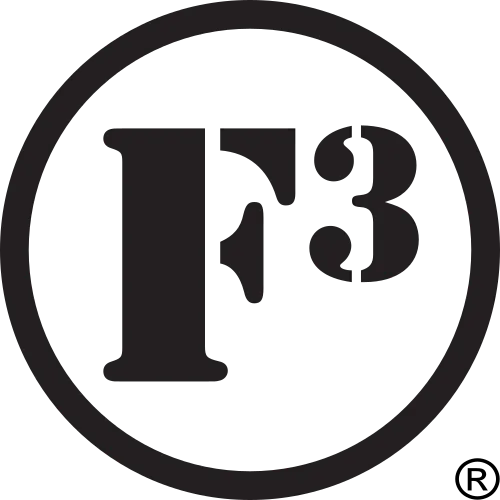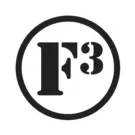ACCOUNTABILITY (Q2.5)
Submission To Standard Through Enforcement and Consequence
The HIM seeks Accountability because his life is not his own
No matter how dedicated or deliberate a HIM is in the building of his Guardrails, there will be some stretches of his road that he will not be able to shore up through his own Bricklaying. These are a man’s Blind Spots, the hard-wired gaps in his nature that he cannot protect without help.
A Blind Spot is not a moral weakness that a man can work through in solitude to overcome. A moral weakness is a Virtuous belief reinforced by a negative Habit, like bigotry manifested by the use of racial epithets. Unlike a Blind Spot, a moral weakness is subject to self-regulated change through determined application of the Get Right. Viewing a Blind Spot as a moral weakness dooms a man to defeat because he alone is powerless over it. He can never win without help.
This distinction between a moral weakness and a Blind Spot is reflected in the first step of AA: we admitted we were powerless over alcohol–that our lives had become unmanageable. This step is first because an alcoholic cannot begin to recover until he accepts that fact that for him the abuse of alcohol is not a moral weakness but a Blind Spot. For other people, non-alcoholics, it might be different but that is irrelevant to the alcoholic’s recovery.
The Survivor is ruled by his Blind Spots. Like an insatiable parasite they slowly suck the life out of him. The Sad Clown softly submits to his Blind Spots, seeking to uncomfortably coexist with them long enough to die without ever having to ask for help eradicating them. His is a life of solitary denial and Hopelessness.
The HIM is different. Because he is a Servant who lives for his Mission, he treats his Blind Spots like any other Obstacle in his life, a Problem that impedes Movement. Because a Problem can and must be remedied, the HIM does so by seeking Accountability. For a Blind Spot, that is the only thing that works. Although this requires him to admit his Problem to others, the HIM presses forward because his pride and sense of self are less important than the people he Serves.
After all, because he is Living Third, his life is not his own.
Accountability shines the light of Hope into a man’s Blind Spots
In F2 (Language), we used Accountability as an example of a word that Goo Nation had denatured but which F3 has redefined back to its original meaning and use. This is necessary because Accountability is such a crucial component of F3’s Leadership philosophy. Without Accountability, a man cannot Live Right. If he cannot Live Right he cannot Lead Right. If he cannot Lead Right he cannot Leave Right.
While Accountability is critical to Leadership, and ultimately results in Joy to those who Practice it, it does not produce Happiness in the short run. Nobody likes being held Accountable. It is painful to admit a Blind Spot and ask for help to avoid succumbing to it. It is distressing to expose your life to another man so that he can do the dirty work that Accountability requires.
Pain and distress are antithetical to Goo Nation’s quest for universal Happiness. In order to avoid the un-Happiness that necessarily accompanies Accountability, Goo Nation denatures it into a form of cultural accountability that looks and sounds like the real thing but is ultimately just a Mascot, a symbol of something rather than the something itself.
The HIM is not a Mascot, so he does not bother trying to use Mascot-accountability to deliver him from his Blind Spots. He builds true Accountability into his life by submitting to Standards through Enforcement and Consequence. While this does not bring him short-run Happiness, it is the only thing that can deliver him Hope.
Standards
True Accountability starts with a Standard, which is an objective measure of performance or behavior. To be Effective, it must be inarguable. If it contains any subjective wiggle-room then it is not a Standard.
A good example of an objective and inarguable Standard is the LBZ, a man’s daily weight and FUPA as provided by his properly calibrated bathroom scale and two-dollar tape measure. My pants might lie to me and the mirror will tell me what I want it to say, but there is no bargaining with the LBZ–it is either higher today than it was yesterday, or it isn’t.
Like the LBZ, Standards work best when they are binary, as in a Commitment to zero-engagement with pornography. Binary Standards leave no room for the kind of subjective interpretation inherent in committing (for example) to engage in less pornography. Who is to say what less is, I either looked at dirty pictures today or I didn’t.
Standards are not high-sounding ideals or ethical aspirations that cannot be concretely defined, such as cooperativeness, academic humility or a commitment to diversity. While such things may be important and valuable to a particular Group, they cannot serve as Standards because they are susceptible to multiple definitions and subjective evaluation. I will weigh no more than 173 pounds is a Standard. I will commit myself to a healthy lifestyle is an aspiration, not a Standard.
Because Goo Nation seeks to avoid the un-Happiness that is incidental to Accountability, the cultural accountability it practices replaces objective Standards with subjective aspirations. The former requires painful Movement today while the latter allows for a gentle nod toward tomorrow.
The HIM designates and maintains Standards to govern his life because he knows that aspirations alone will not help him with his Blind Spots.
Enforcement
Enforcement is an external force that applies a Standard. A Standard without Enforcement is like a nail without a hammer. It avails nothing. Enforcement requires the intercession of another person to measure one’s actual performance or behavior against the Standard he previously agreed to set for it. No man can hold himself Accountable. If that were possible people would not need Accountability to maintain desirable performance and behavior. We would all just simply straighten ourselves out and fly right. While self-correction might work for a moral failure it can’t work for a Blind Spot. A Blind Spot is a nail that needs a hammer.
Without Enforcement, a man’s Blind Spots will lead him to continually lower his own Standards to meet his own declining performance until both meet at the bedrock of his life. Knowing that, the HIM relies on Enforcement to arrest this free-fall as early as possible so that he may get back on track as quickly as possible. This will require another man to cover your Blind Spots for you by watching your step on the scale or inspecting your computer to see what you’ve been looking at.
Goo Nation’s opposition to Enforcement is the logical extension of its view of judgment as the gravest of cultural sins. Judgment is an articulated conclusion based upon observable facts. It presupposes that there is a universally applicable right (and wrong) that transcends individual circumstance. When judgment is applied, Shame–a painful feeling of humiliation or distress caused by the consciousness of wrong or foolish behavior–is the natural result. When ashamed, a sane person cannot possibly be Happy. Since Shame results from judgment, and judgment is inherent in Enforcement, Goo and Enforcement are natural antagonists.
Despite their antipathy to Enforcement, practitioners of cultural accountability recognize that there must be some agency for the application of their aspirations. This explains why Members of Goo Nation often resolve to hold themselves accountable or pronounce that we (collectively) are accountable to future generations for our (collective) conduct.
Just as aspirations are Mascot-Standards, this is Mascot-Enforcement. Blind Spots are not moral failures that can be shored up through self-regulation. A man cannot hold himself Accountable any more than he can remove his own appendix. Nor can a Standard be Enforced by a person or people who do not actually exist. Future Generations is straw man incapable of looking at your cell phone to see who you have been texting. Only a flesh and blood man can do that.
Unlike the Members of Goo Nation, a HIM does not reject Shame as a cultural sin. He views it as an undesirable but necessary prophylactic in his battle against his Blind Spots. While it makes him un-Happy in the short-run it provides Hope for Joy in the long-run.
Consequence
Shame is something people naturally wish to avoid. Like other Consequences, it is an unwanted result that follows a failure to meet a Standard. If a man does not feel at least some Shame from the Enforcement of a Standard that he has failed to meet, that Standard probably does not mean that much to him.
When I was in the service we had periodic weigh-ins to make sure that each individual soldier was in compliance with Army height and weight requirements. These Standards were very clear and objective and the Enforcement mechanism was simple and Effective. We lined up in front of the scale so that each man could have his weight recorded by a sergeant on a clipboard. Failure was immediately apparent because an overweight soldier would begin stripping off his clothes one piece at a time in an effort to make weight. He avoided being taped to determine if his waistline was sufficiently narrow enough to justify his extra weight.
Given that physical fitness has a direct impact on a soldier’s capability to fight, the Army was unforgiving about the failure to meet the weight Standard. The initial Consequence was placement upon what was officially known as the Army Weight Control Program, but what was commonly called the Fat Boy Program. Failure to make progress there resulted in the second Consequence, which was involuntary separation from the Army.
For most of my time in the service (given my height and age) my Standard was 185 pounds, but I don’t recall a time when I stepped on the scale and saw it go any higher than 175. In nine years on active duty I never spent a day on the Fat Boy Program. Nor did I ever have to step back off the scale and start taking off my clothes for a re-weigh knowing that 100 men were standing behind me and watching me do it. The Shame of that prospect was a powerful driving force in my efforts to maintain my weight. I was an officer with Leadership responsibilities. I could not fathom even coming close to the Consequence of the Fat Boy Program or having to take off a single piece of clothing to avoid it.
For me, staying below 175 was not physically easy. I’m an endomorph with a body that wants to weigh twenty pounds more than that (at least). To do it, I had to workout almost every day and be very careful about what I ate. Every Monday morning I climbed on my own bathroom scale to make sure my efforts were enough. Every so often I found myself ticking up a bit from laziness or self-indulgence and would have to increase my running and decrease my calories for a week or two to get back on track. While none of this was physically easy (in that it took effort), it was all emotionally easy (in that no great force of will was required). The clarity of the Standard I had to meet, the unyieldingness of the Enforcement that I knew was coming and the Shame of the potential Consequences that would result from failure provided me with a measure of Accountability that was so powerful that I never realized that weight control was one of my Blind Spots.
At least until I left the service and started law school. That is where I was confronted with the hard cold Truth. Without the Enforcement of the periodic weigh-in and the Consequence of the Fat Boy Program I had no mechanism to make me conscious of the wrongful and foolish behavior in which I had immediately began to indulge when set free from Accountability. I stopped running, ate what I wanted and let the dust gather on my bathroom scale. By the end of the first semester I left my 175 prophylactic barrier in the rear view mirror and blew right through 185. Of course I didn’t know that because I had abandoned the Brick of the weekly weigh-in along with everything else that had kept me Fit.
What woke me up was a trip back to Fort Bragg over Christmas. I went to my old gym to lift weights (the only form of exercise I still engaged in) and ran into a guy who didn’t realize I had left the service. He took one look at me and said “What the heck happened? You look like the guy who ate you.” I tried to laugh it off, waited until he wasn’t looking and then dragged myself over to the gym scale where I saw for myself that he was absolutely right. I weighed 205.
In only four months without Accountability I had gained thirty pounds. When I got back to school after Christmas I tried to start running again but found that I couldn’t even go a mile without my calves cramping up and stopping me. Yet, because there were no Consequences otherwise, I still managed to procrastinate until the end of the semester before I did anything about it. By then, I had gained another fifteen pounds.
Finally the practical reality of either having to buy all new clothes or lose weight forced me into action. Through draconian calorie reduction and monastic living I was able to get back down to 185 by the end of the summer. I returned to law school for my second year convinced that my foray into un-Fitness had been an aberrational blip and that I’d stay at 185.
My optimism was unwarranted because by Christmas I was fat again. The only difference from the previous year was that now I was aware of it, which led me to avoid the gym at Fort Bragg and any other place where I might encounter someone from my previous life. I was unwilling to bear the Shame. Instead, I embarked alone again on the monastic living required to lose the weight. And I did, only to gain it right back again.
Lacking Accountability, I would replicate this cycle continually over the next fifteen years. In Freed To Lead we call this Pogo 40–repeatedly gaining and losing the same 40 pounds. I didn’t realize it at the time, but while I was in the grips of Pogo 40 I was either in denial and gaining weight (and hating myself) or living monastically and losing weight (and hating everyone else for not having to join me in my misery).
For me Pogo 40 was a constant state of radical Flux, with deep dark valleys and very brief glimpses of the mountaintop. Because I was an Amateur, I expended all of my energy fighting the emotions my Flux produced, leaving me nothing to Get Right. Without consistent discipline over my Queen, my King was ragged and my Jester ruled over me at will. Given that each day was one in which I either hated myself or everybody else, my Fellowship was constantly Decelerating. And because I was consumed with thoughts of myself, it was impossible to Accelerate my Faith. I was the portrait of a Sad Clown, stuck dead in the middle of the Sur-Ser Continuum with a future reservation at the Survivor end of the spectrum–all because weight control was a Blind Spot for me. My inability to Guardrail my own Queen had infected my entire life.
If it had not been for F3 I would still be stuck in Pogo 40. I found that striving to Get Right with other men, rather than as a monastic solo act, gave me back the Accountability I had lacked since leaving the military. After fifteen years in the wilderness, I had Hope that my Blind Spot would not rule my life.
An Effective Shield Lock provides mutual Accountability
The Shield Lock is the horizontal relationship between men. Locking Shields is the way we bind our lives together to seek collective Advantage and watch each other's Blind Spots. Without a Shield Lock we have no choice but to fight the Flux alone, and that is not nearly as successful as doing it with other men you Trust.
A Shield Lock can be as small as two men or as big as you make it, but the ideal number of Members is four. While a cord of three strands is not quickly broken, having that fourth man gives the Group redundancy in the face of the unexpected and is thus a matter of Preparedness. However, more than four men stresses the Rule Of 3P, as it is nearly impossible to get that many men (or more) to be Proximate on a periodic basis. Also, it becomes increasingly difficult to build Trust within a Team as the number of Members increase–and the Shield Lock is a Team that must have a high level of Trust to be Effective.
In addition to a high level of Trust, a Shield Lock must be truly horizontal to be Effective in the provision of mutual Accountability. This means that the Members must be Accelerating all three of their F’s in the same general direction at the same general pace. This requires shared Virtues and roughly equivalent Competence in their pursuit.
Shared Virtue is unity in the Group’s Essentials, which are those standards of moral excellence that cannot be compromised. From F3’s perspective, a Shield Lock’s Essentials can be found in the Get Right and arise from the Commitment to Accelerate one’s Fitness, Fellowship and Faith–proper alignment with oneself, Concentrica and Creator are Virtues that cannot be compromised. They are Essential.
This is not a matter of judgment but of practicality. A man who does not see Virtue in the consistent Acceleration of his Fitness cannot bear fruit if yoked to a man who believes it is Essential. Likewise, a man who has given up on his marriage is not going to find Effective mutual Accountability with a man who is Committed to placing his M at the center of his Concentrica. Nor will there be mutual Advantage for two men with incompatible Belief Systems, as the resulting friction will sap the Group’s energy. A Shield Lock is like a four-man rowboat. The Members have to be in agreement about where they are headed or they will be rowing against each other.
They must also be roughly equal in their Competence at pulling at the oars for the boat to make proper headway. If there is too great a disparity between any two Members, their relationship will tip from horizontal-Shield Lock to vertical-Whetstone, resulting in the more Competent man doing all the Enforcement and receiving none in return. While this might work for the less Competent man, it will leave the more Competent man with no coverage for his Blind Spots and defeat the Purpose of the Shield Lock.
Of the five relationships on the Concentrica, the Shield Lock is the one that requires the most Deliberatude to Accelerate. It is difficult to find three other men with Shared Virtues and equal Competence who are also Proximate and willing to be periodic and Purposeful in their pursuit of mutual Accountability.
But that is not an excuse that a HIM will accept. He is Pro who knows that he needs Accountability to Live Right and does whatever it takes to get it.

Additional Study Materials
Socratic
Can a man hold himself Accountable?
Are there necessary components to Effective Accountability?
Is there an ideal relationship for mutual Accountability between men?
Spur
The HIM seeks Accountability because his life is not his own
Accountability shines the light of Hope into a man’s Blind Spots
An Effective Shield Lock provides mutual Accountability
Podcasts
2020
2019
Additional Resources




Facebook
Instagram
X
LinkedIn